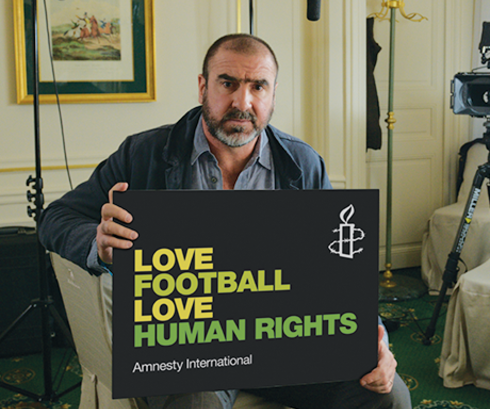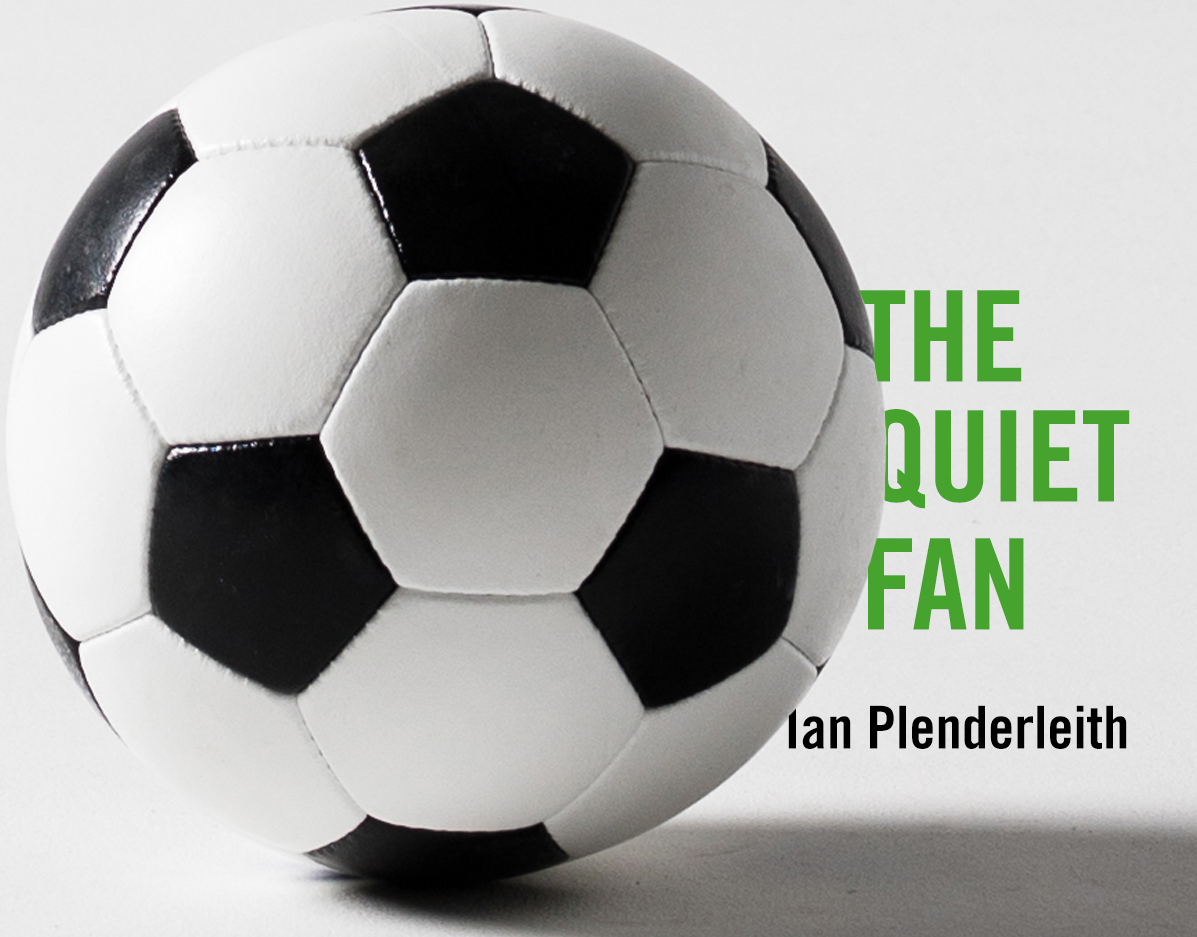 |
| Eric Cantona shows us a sign |
Football’s authorities have always claimed,
predictably enough, that they can not be involved in “politics”, as though
human rights were a mere issue among others to be debated during electoral
campaigns. As though sport exists in a cultural vacuum, never to be politically exploited by
states wanting to present a phoney ceremonial
façade of peace and national stability to the world at large.
Yet from Hitler’s 1936 Olympic propaganda
triumph, all the way to Brazil’s World Cup and the Rio Olympics 80 years later,
sporting
mega-events have been subject to political parasites channelling precious resources towards grand but frequently redundant arenas and facilities. Vladimir Putin’s $50 billion 2014 Sochi Winter Olympics were a classic case of corrupt over-spending on infrastructure built by exploited labour, all for the sake of show-casing model Mother Russia. Hardly had the last medal been draped around a cheating host athlete’s neck when Putin annexed the Crimea and instigated an undeclared war with the Ukraine.
mega-events have been subject to political parasites channelling precious resources towards grand but frequently redundant arenas and facilities. Vladimir Putin’s $50 billion 2014 Sochi Winter Olympics were a classic case of corrupt over-spending on infrastructure built by exploited labour, all for the sake of show-casing model Mother Russia. Hardly had the last medal been draped around a cheating host athlete’s neck when Putin annexed the Crimea and instigated an undeclared war with the Ukraine.
This week, however, Fifa ExCom member and President
of the German FA Reinhard Grindel has declared that politics may have something
to do with sport after all. After several Arab countries broke off diplomatic
relations with Qatar on the grounds that the state is a sponsor of terrorism,
Grindel wondered aloud if it would now really be possible to hold the 2022 World Cup in the Gulf state.
Grindel has now provided a hint as to where
football’s moral boundary lies. It’s tolerable for Qatar to build stadiums on a
system of slave labour, and for several hundred of those workers to die. It’s
of no issue that Qatar is not a democracy. Football can also turn a blind eye
to the fact that homosexuality is illegal in Qatar, and that Israelis (also
part of the big happy Fifa family) are not permitted to enter the country. But
if Qatar is alleged to be financing movements that might lead to death on the
streets of Germany, then it’s time – all of a sudden – to moot the possibility
of a boycott.
Such egregious hypocrisy is not surprising,
but that doesn’t make it any more acceptable, even if there’s part of me that
thinks, “Well, whatever it takes.” Fifa’s probably been looking to back out of
Qatar ever since Sepp Blatter opened the winning envelope with a brittle smile
back in late 2010. The smile that said, “I knew we were corrupt
sons-of-bitches, but Jesus Christ, I didn’t know we were that fucking corrupt sons-of-bitches.” So if Fifa now moved the
whole thing to a model democratic state - though it might take a while to find
one - we could all heave a sigh of relief and agree that Qatar only won the
damned thing to start with because it bribed all the right people (as
documented in Heidi Blake and Jonathan Calvert's brave and thorough book The Ugly Game: The Qatari Plot to Buy theWorld Cup).
We fans, however, should hold ourselves to higher
standards. A lot of people have said to me, “I’m going to boycott Qatar, but I
will still watch Russia 2018.” Again, we are faced with a boundary of
apparently acceptable human rights violations. Since being awarded next year’s
event, the Russian state has continued to suppress and murder political
opposition, and clamped down on dissent. At least one of its stadiums is also being built under slave labour conditions by workers from North Korea. It has
passed laws strongly discriminating against homosexuality. All the while, Fifa
continues to burnish its bunting with platitudes about Fair Play For All.
We expect no better from self-protective functionaries
steeped in conservatism and the interests of their own bank balance, but we supporters should not forget the extent of our own mass power. Most of us may not have the time, will, skill and connections to stand
for office in our local FA, but as a mass we have a simple but effective tool –
we can stay away or switch off the TV, and we can say why we’re doing so. It’s
not that hard to do the right thing, especially at no personal cost or
sacrifice besides depriving ourselves of a month on the sofa staring at very
well-compensated sportsmen.
I’m still surprised, though, at how even
politically minded friends respond to my intent to boycott with the word,
“Why?” It seems obvious to me, even if it sounds pompous to speak it out loud: human rights are more important than football. I
can’t think of a counter-argument for that. The only justification for watching
the finals in Russia and Qatar would be to say, “Frankly, I don’t care.” Or,
"Of course I care, but not enough to miss the football."
So I’m trying to sell it a different way.
Look at it as a month away from football, a game which increasingly thinks its
importance outranks all other human pursuits. While the world’s distracted watching endless negative matches, break the habit. There are still places to escape from the game, even during the
World Cup. For the first time in years, the prospect of a major tournament no
longer feels like a chore. I’m actually looking forward to it.
Show some independence and flex your oppositional
muscles – it’s exactly what Fifa and Vladimir Putin rely on us not to do.
The Quiet Fan was published by Unbound in autumn 2018 and is available here.
The Quiet Fan was published by Unbound in autumn 2018 and is available here.

No comments:
Post a Comment